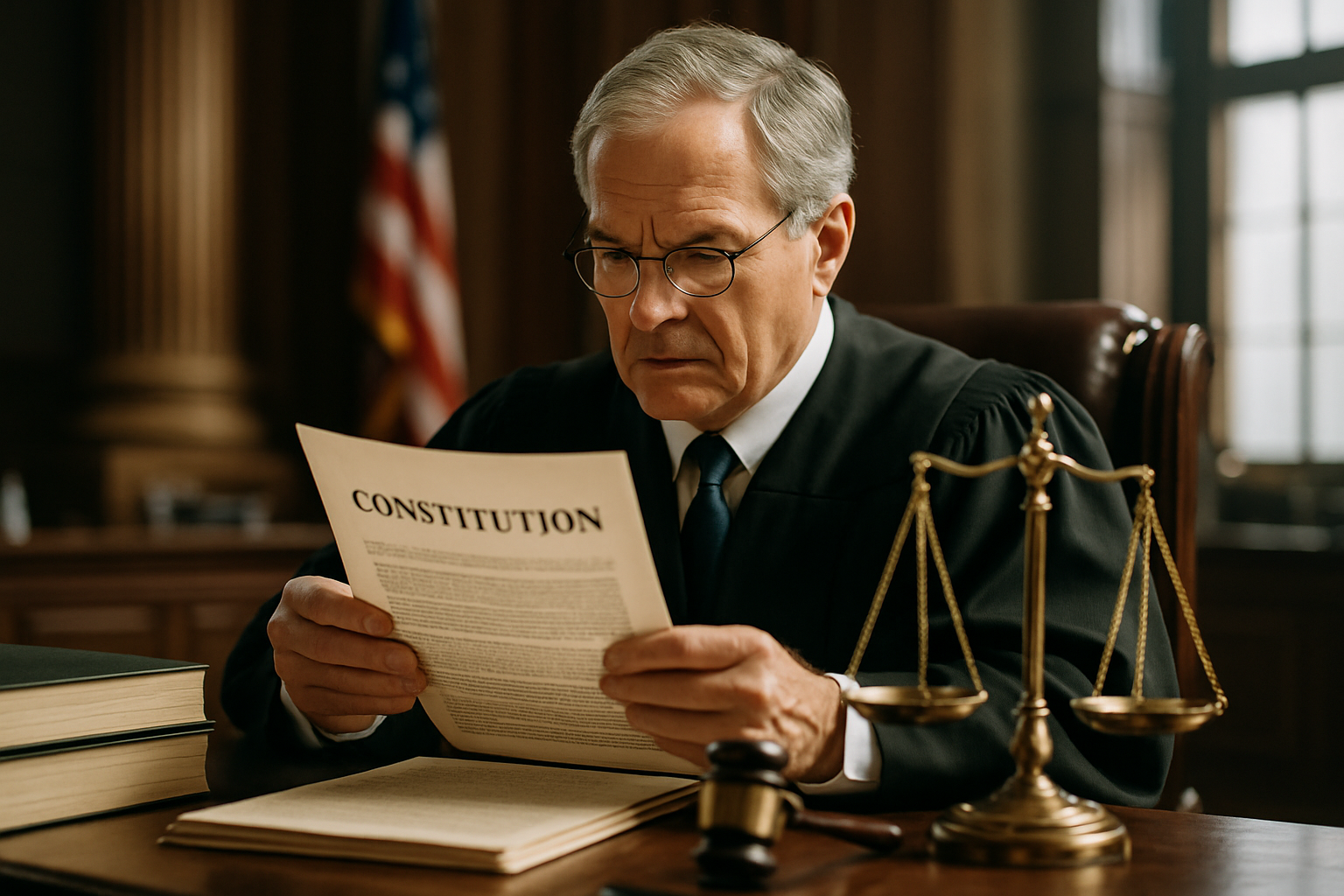"Revisiting the Doctrine of Judicial Review: An Examination of Its Developments and Implications"
The doctrine of judicial review plays a crucial role in maintaining the balance of powers in a democratic system. This article delves into the historical background, significant developments, and societal implications of this legal principle, inviting readers to gain a deeper understanding of its role in shaping the legal landscape.

Historical Context of Judicial Review
The doctrine of judicial review originates from the landmark case of Marbury v. Madison in 1803. In this case, the Supreme Court of the United States asserted its authority to review and invalidate government actions that conflict with the Constitution. This marked the birth of judicial review, firmly establishing the judiciary’s role as the interpreter of the Constitution.
Noteworthy Developments in Judicial Review
Since the Marbury v. Madison case, numerous developments have shaped the practice of judicial review. For instance, the case of Cooper v. Aaron in 1958 reinforced the Supreme Court’s authority, clarifying that its interpretations of the Constitution are binding on all states. In recent years, debate has arisen over the potential for judicial activism, where courts are accused of making rather than interpreting laws.
Current Legal Updates Surrounding Judicial Review
Currently, discussions surrounding judicial review are centered on its role in a polarized political environment. With controversial decisions on topics such as healthcare and immigration, some critics argue that the courts are overstepping their bounds, while proponents maintain that judicial review is essential to protect individual rights and maintain constitutional order.
Implications and Impact of Judicial Review on Society
The doctrine of judicial review has far-reaching implications for society. By interpreting and applying the Constitution, the judiciary plays a pivotal role in shaping public policy and societal norms. Judicial review has been instrumental in major societal changes, such as desegregation and marriage equality, underscoring its profound impact on societal evolution.
The Balance between Judicial Review and Democratic Principles
Striking a balance between judicial review and democratic principles is a delicate task. Critics argue that unelected judges wielding the power of review can undermine democratic decision-making. Supporters, however, contend that judicial review serves as a necessary check on legislative and executive powers, safeguarding against potential abuses.
In conclusion, the doctrine of judicial review, while sometimes contentious, remains a cornerstone of constitutional law. Its role in interpreting the Constitution and acting as a check on government power is paramount. As societal norms and legal landscapes evolve, the doctrine of judicial review will no doubt continue to play a pivotal role in shaping our legal system and society.






